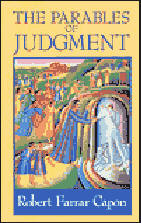

He did not come to reward the rewardable, improve the improvable, or correct the correctable he came simply to be the resurrection and the life of those who will take their stand on a death he can use instead of on a life he cannot. (pg 222)įor Jesus came to raise the dead. The fact is that it can only die its way there, lose its ways there. If the world could have lived its way to salvation, it would have, long ago. It is just this insistence, as I see it, that leads Jesus to the last phrase of the prayer, “and do not lead us into trial.” Life is a web of trials and temptations, but only one of them can ever be fatal, and that is the temptation to think it is by further, better, and more aggressive living that we can have life. And they can be celebrated by us only if we accept death as the vehicle of our life in him. They are possible only because we are dead and our life is hid with Christ in God (Col. If we attempt any of those things while still trying to preserve our life, we will never manage them. We pray in Jesus’ death and resurrection, we are forgiven in Jesus’ death and resurrection, and we forgive others in Jesus’ death and resurrection. Death and resurrection are the key to the whole mystery of our redemption. Unless he does it out of mindlessness or idiotic calculation, he cannot write off what is justly due him without accepting his own status as a loser, that is, as dead. A person who cancels a debt is a person who dies to his own rightful possession of life.

And it is just that truth, I think, that Jesus underscores when he holds up the forgiveness of debts as the model for our imitation of his forgiving. “Forgive us our sins as we forgive every one who is indebted to us.” The Gospel truth is that forgiveness comes to us because God in Jesus died to and for our sins - because, in other words, the Shepherd himself became a lost sheep for our sake. Psych! Another batch of Gospel bombs from Robert Farrar Capon’s Kingdom, Grace, Judgment: Paradox, Outrage, and Vindication in the Parables of Jesus, a few of which may sound familiar:


 0 kommentar(er)
0 kommentar(er)
